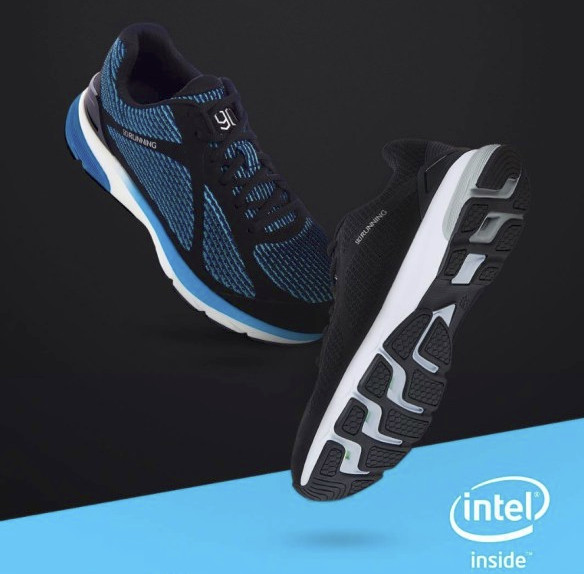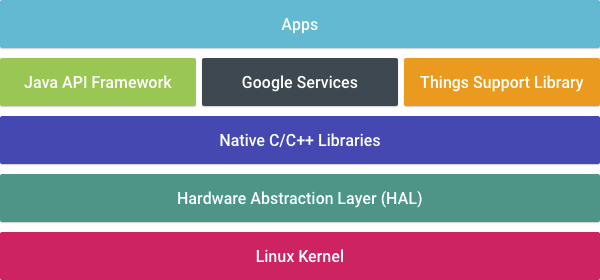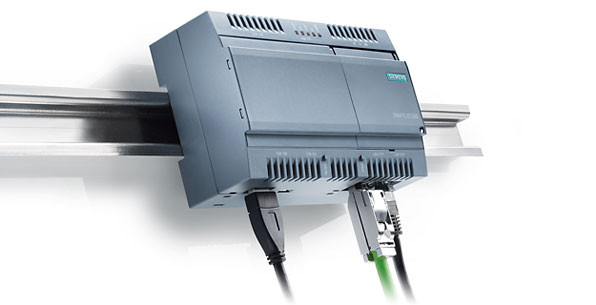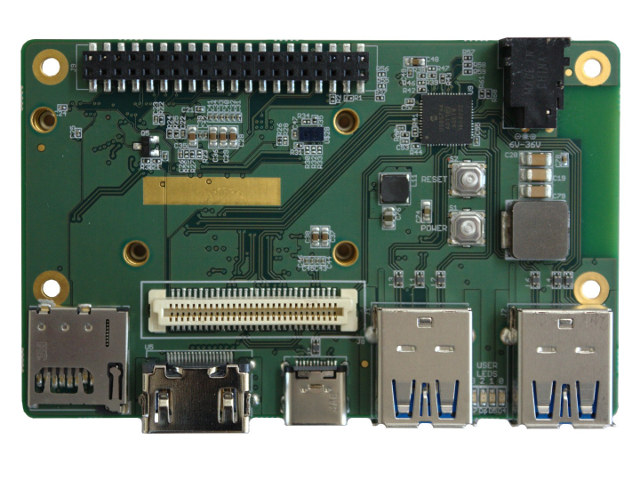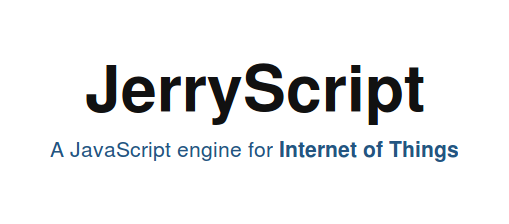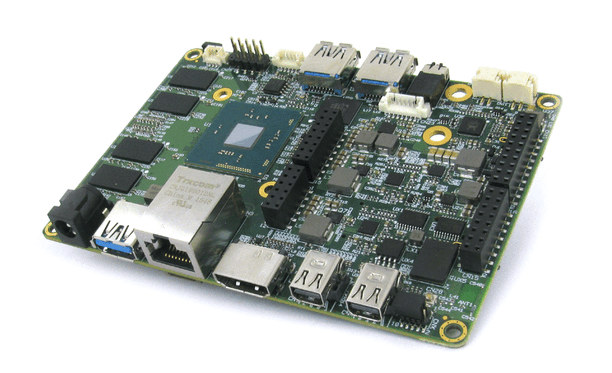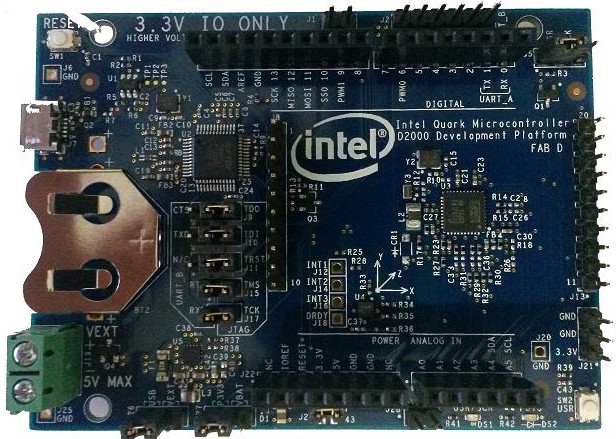If you’ve ever used a fitness tracker on a wristband, you must know that although it gives an indication of your level of activity, it’s usually not really accurate to count steps. Xiaomi’s “90 Minutes ultra smart running shoes” fixes the issue as the fitness tracker powered by Intel Curie module is placed right inside the shoes. Most of the information is in Chinese, and I could only find limited specifications for the shoes: Size – 39 to 45 Intel Curie Module based on Quark SE SoC with 6-axis accelerometer and gyroscope, Bluetooth 4.0 LE connectivity Battery – Good for 60 days on a charge Material Shoe sole – Rubber Shoe vamp – Fabric + Synthetic leather Shoe insole – Antibacterial removable air cushions The small device based on Intel Curie module resides inside the sole, stores fitness data such steps, distance covered, speed, (estimated) calories burnt, etc… It’s unclear […]
Android Things OS for the Internet of Things Supports Raspberry Pi 3, Intel Edison, and NXP Pico Boards
Google introduced Project Brillo a little over a year ago, an operating system based on Android, but with a smaller footprint optimized for Internet of Things applications. Brillo has now just become Android Things OS, with Google releasing a developer preview of Android Things working on Raspberry Pi 3, Intel Edison, and NXP Pico boards. The company has also updated the Weave platform to simplify connection of all types of devices to the cloud, and interaction with services like the Google Assistant. The Weave Device SDK currently supports schemas for light bulbs, smart plugs, switches, and thermostats, with more type of device supported in the future, as well as a mobile app API for both Android and iOS. Using an Android based OS instead of a pure Linux OS should make it easier for Android app developers to create smart devices thanks to the use of familiar Android APIs and […]
Siemens SIMATIC IOT2000 UL Approved Educational & Industrial IoT Gateways are Powered by Intel Quark Processor
Siemens has recently released SIMATIC IOT2000 series IoT gateways based on Intel Quark X1000/X1020 processor also used in Intel Galileo Gen 2 board with both IOT2020 educational version, and IOT2040 industrial version featuring UL-approval, Arduino headers, and a mini PCIe expansion socket. SIMATIC IOT2040 specifications: SoC – Intel Quark X1020 32-bit processor @ up to 400 MHz with 16KB cache (2.2W TDP) System Memory – 1 GB RAM Storage – micro SD slot Connectivity – 2x Ethernet ports Serial – 2x RS232/485 interfaces USB – 1x USB 2.0 port, 1x micro USB device port Expansion – Arduino UNO compatible headers, mini PCIe socket Misc – Battery-backed RTC Power Supply – 9 to 36V DC wide-range power supply Dimensions – 144x90x54 mm Weight – About 200 grams Temperature Range – 0 °C to up to +50 °C Certificates – CE, UL, FCC, KCC, RCM The device support wall-mount and DIN rail […]
Gumstix Nodana 96BCE 96Boards Compatible Baseboard Takes Intel Joule Module
96Boards is an initiative from Linaro, an engineering organization focusing on ARM development, to define some hardware and software specifications for development boards. But since 96Boards specifications are open, Gumstix decided to create the first x86 board compliant with 96Boards CE hardware specifications with Nodana 96BCE baseboard powered by Intel Joule Module. For obvious reasons, this will never be an officially supported 96Boards.org platform. Nodana 96BCE board specifications: SoM – Intel Joule Module based on Intel Atom T5700 or T5500 processor with up to 16GB storage, 4GB RAM. External Storage – 1x micro SD card Video Output – 1x HDMI port USB – 2x USB 3.0 ports, 1x USB 3.0 type C port Expansion Headers 96Boards Low Speed connector with I2C, SPI and UART 96Board High Speed connector with MIPI DSI and USB 2.0 Power Supply – 8 to 18 V (if it follows 96Boards CE specs) Dimensions – 85 […]
Samsung JerryScript is a Lightweight Open Source JavaScript Engine for the Internet of Things
In the old days, micro-controller programming was all done in assembly or C, but in recent years higher level languages, included interpreted ones such as Python and JavaScript, have made their ways into MCUs with projects such as MicroPython or Espruino (JS) often running on STMicro STM32 ARM Cortex M micro-controllers, but also other platforms such as ESP8266. As I browsed through the Embedded Linux Conference Europe 2016 schedule, I discovered that Samsung worked on it own implementation of a JavaScript engine for the Internet of Things: JerryScript. It is a full implementation of ECMAScript 5.1 standard written in C that can run on micro-controllers with less than 64KB RAM, and less than 200KB storage (160KB footprint with ARM Thumb-2 compilation). JerryScript is comprised of two main components: Parser and Virtual Machine (VM), with the parser performing translation of input ECMAScript application into byte-code than is then executed by the Virtual […]
UDOO x86 Development Board Combines Quad Core Intel Motherboard with Arduino 101 Board for $89 and Up (Crowdfunding)
UDOO is known for their ARM based development board with an MCU to control I/Os from Arduino compatible headers such as UDOO Quad or UDOO NEO. The community has now launched a new board called UDOO x86 powered by a quad core Intel processor, and integrating the Intel Curie compute module with Quark SE MCU used in Arduino 101, and the Arduino UNO headers. The basic version will come with Atom x5-E8000 Cherry Trail Braswell processor while the advanced version will feature Celeron N3160 Braswell processor. UDOO x86 Basic and Advanced specifications: SoC Basic – Intel Atom x5-E8000 quad core processor @ 1.04 / 2.0 GHz GHz with 12EU Intel HD graphics @ 320 MHz (5W TDP) Advanced – Intel Celeron N3160 quad-core processor @ 1.6 GHz / 2.24 GHz (Turbo) with 12EU Intel HD graphics@ 320 MHz/640Mhz (4W SDP / 6W TDP) System Memory Basic – 2 GB DDR3L […]
Intel Launches $15 Quark D2000 Arduino Compatible Board
Intel introduces three new Quark Micro-controllers last year, and I already experimented with Intel System Studio tools, quite similar to the Arduino IDE, and designed for hardware such as Intel Quark D1000 Customer Reference Board. So far the company had not released any boards available to the general public, but this has now changed since they’ve launched the “Intel Quark Microcontroller Developer Kit D2000”. Intel Quark D2000 development board specifications: MCU – Intel Quark D2000 32-bit processor Intel Pentium x86-compatible without x87 FPU @ 32 MHz with 8 KB SRAM, 32 KB instruction flash, 8 KB OTP flash and 4 KB OTP data flash USB – 1x micro USB (JTAG) for power and programming/debugging Sensors – 6-axis Accelerometer / magnetometer with temperature sensor (Bosch Sensortec BCM150) Expansion options: Arduino Uno compatible SIL sockets (3.3V IO only) Booster pack compatible SIL headers (3.3V IO only) Misc – Reset and user buttons, jumpers, […]
Yocto Project 2.0 “Jethro” Released
The Yocto Project 2.0 was released a few days ago. The framework used to create embedded Linux distributions supports Poky 14 “Jethro” reference distribution by default, but other Linux distributions can also be built with the Yocto Project. Some of the key features and improvements of Yocto Project 2.0 include: Added gcc 5.2 which is now the default compiler (gcc 4.8 and 4.9 are also provided) Updated linux-yocto kernel for qemu* and reference BSPs to version 4.1 Added basic support for Altera Nios II and Adapteva Epiphany Added tune files for Cavium ThunderX, Cavium Octeon, ARM Cortex-A17, Intel Quark X1000, and ARM vfpv3 and vfpv3d16 features Toaster Web UI improvements – Better performance and reliability; simplified setup; user-friendly layout; etc… wic image creation tool version 0.2.0 with bug fixed and new features, such as GPT partition tables, native tools, image compression, etc… Image generation adds support for qcow2, vdi (VirtualBox […]


